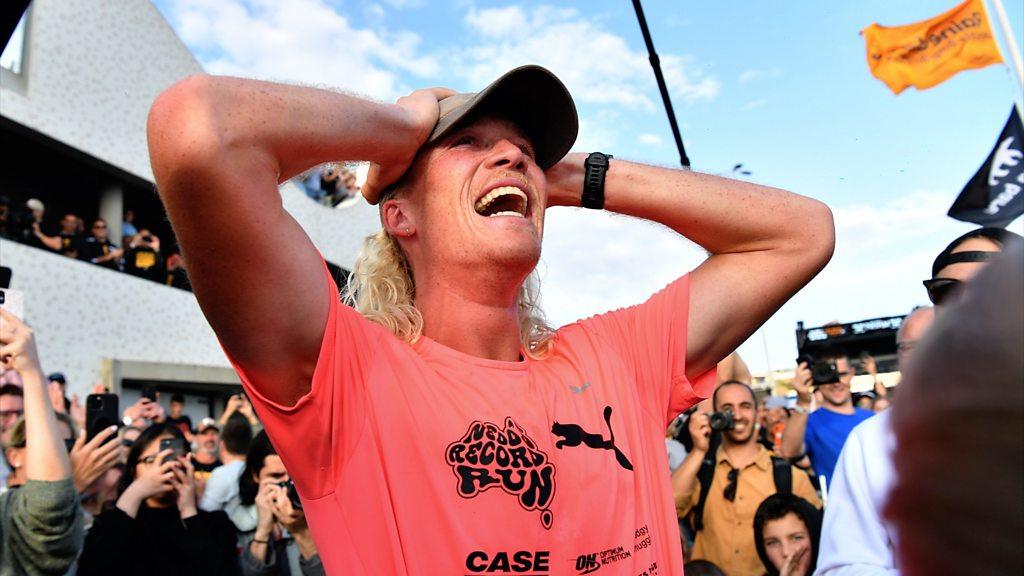'I feel broken': Inside the mind of the woman who ran 1,000km in 12 days
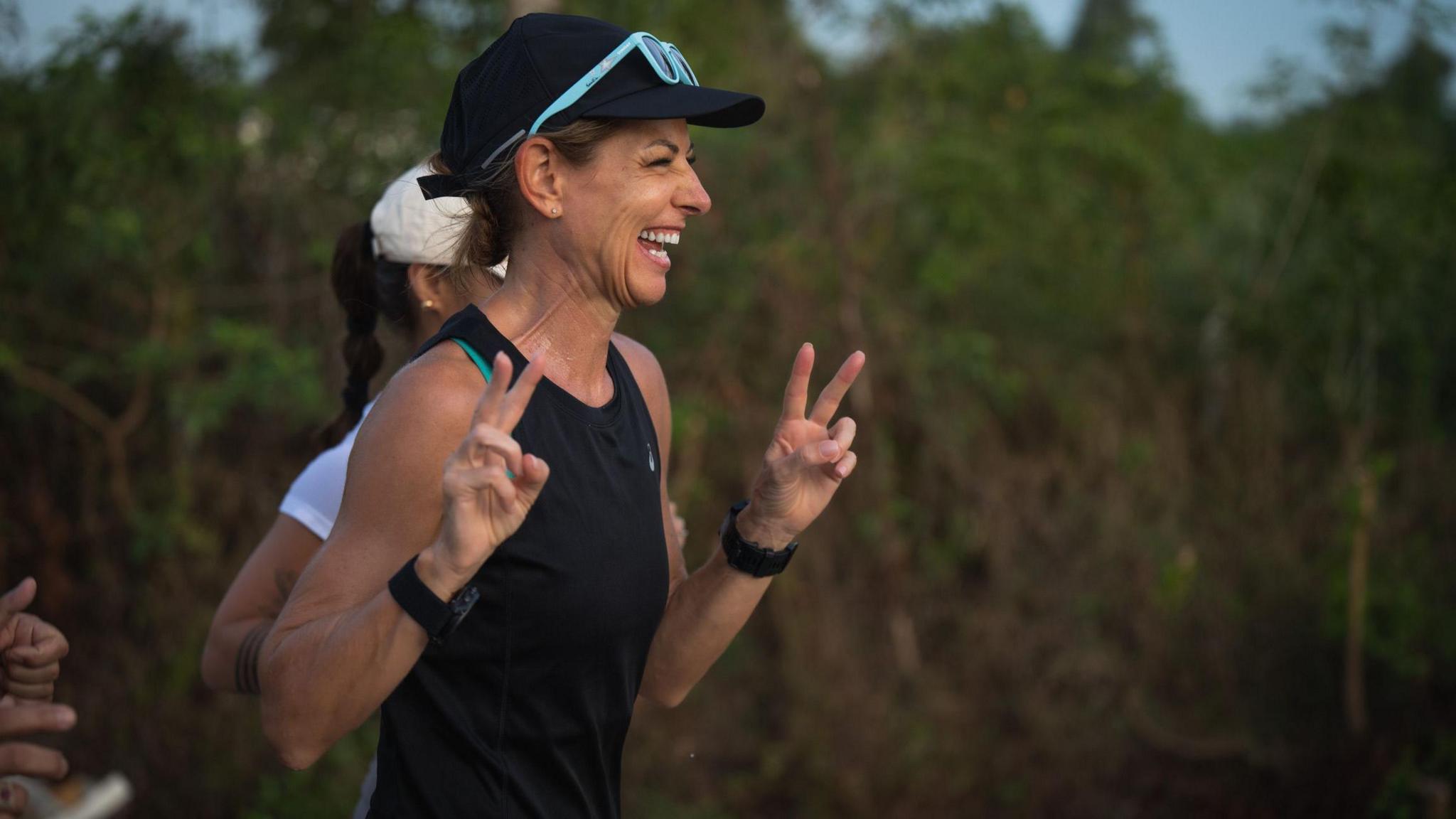
Natalie ran at least 84km a day - the equivalent of two marathons
- Published
"I just have to take one step, one kilometre at a time… Ultra-running is a love-hate relationship," said Natalie Dau, in a voice message she recorded somewhere along the eastern coast of Malaysia.
The 52-year-old had covered a third of her 1,000km run from Thailand to Singapore, and the going was getting tough.
"Today is the first time in four days I have questioned if I would actually finish this thing. I love the challenge of the sport, love the rawness of it all, but hate these low points. And they come often," she said.
Natalie had to clock at least 84km a day - the equivalent of two marathons - to achieve her goal of finishing her run in 12 days.
Natalie is an ultra-runner - they race distances that exceed 42.2km, the length of a marathon. But she has not trained as an athlete all her life. She began racing only in her late 30s to get fitter.
While running has taken off globally, most data shows that growth in Western countries. Figures for Asia are hard to come by, although several countries in the region host popular marathons, such as Taiwan, Cambodia and Japan.
The challenge is finding more takers among non-professional athletes who, like Natalie, run for causes, often documenting their arduous runs on social media.
"Whether you come in first or last, it doesn't matter. You've done something almost superhuman, something that only 0.05% of the world’s population will ever do," she said.
But it takes a toll. She was sunburnt and exhausted from running for hours under the searing South East Asian sun. Her hip had started to seize up on the first day. On day three, she got a urinary tract infection.
She eventually crossed the finish line in downtown Singapore on 5 June, along with hundreds of runners who had come to support her on a weekday.
Clad in bright running gear, they ran through the city's industrial estates in the early hours, just as daily-wage workers, with their backpacks and plastic lunch bags in tow, made their way to work.
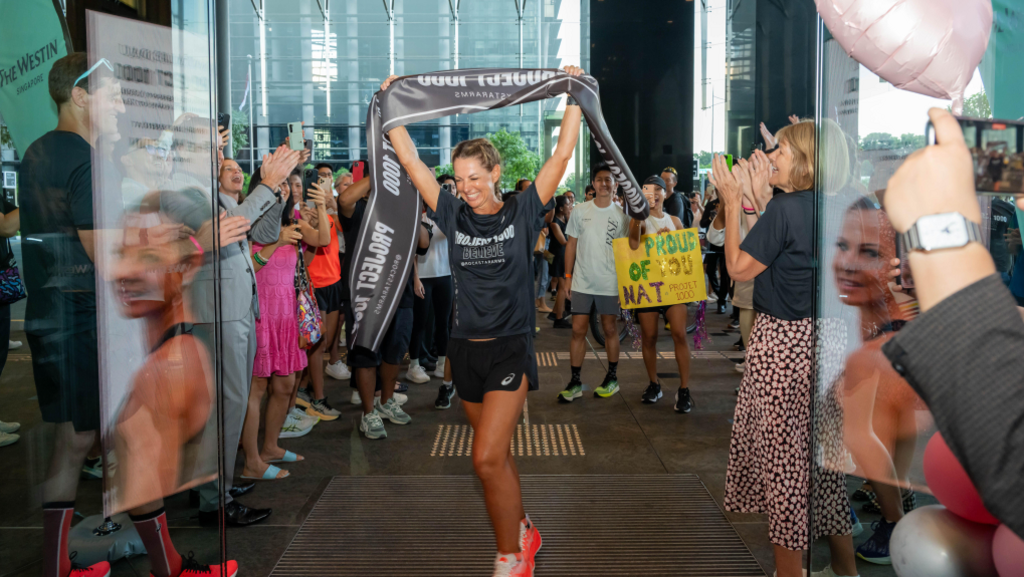
Twelve days of ups and downs
"The longest I have run before this was 200km," Natalie told the BBC the day after she finished her run. "I was looking for a different way to challenge myself."
She had the idea to run from the Thai border, through Malaysia, to Singapore in September. Over the next eight months, several friends came on board to help plan for the run, which was later named Project 1000.
"I was a bit naive back then and knew little about what planning for such a run would take. My team asked me things I hadn’t thought of - what happens if you need a hospital? How do we plan the border crossings? How many safety vans will we need?"
Through the 12-day ultra-marathon, Natalie sent nightly voice notes to the BBC recapping the highs and lows of each day.
On day five, she said: "We had a moment to have some breakfast from a roadside stall and enjoyed the view for five minutes before we headed off again. Today was a good day, but I’m not expecting all days to be good. We’ve still got a long way to go."
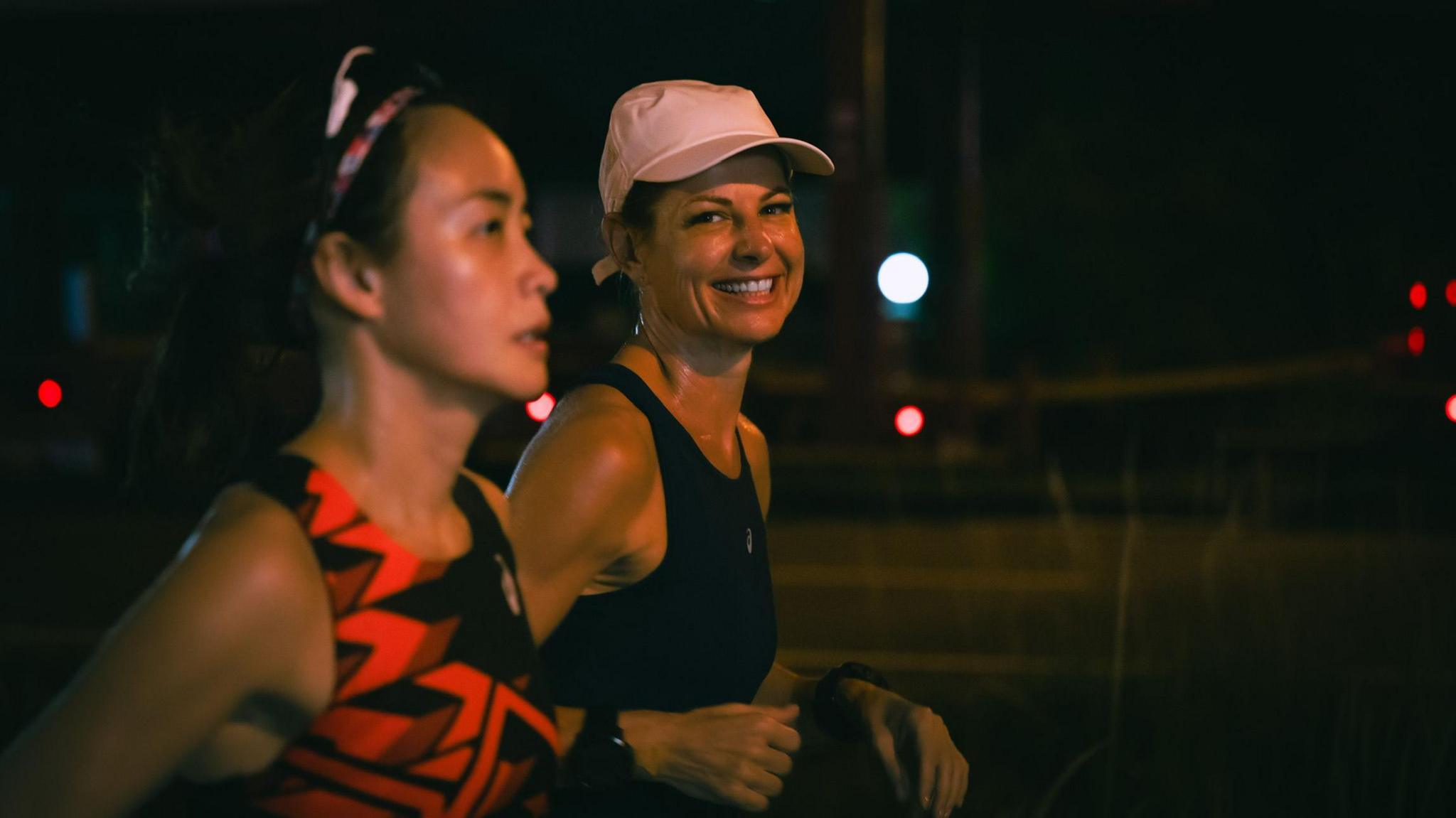
Getting up each day was the “scariest”, Natalie said
She and her team would sleep just two to three hours each night because they decided on day three that she should start running shortly after midnight to beat the heat.
"Finishing dinner at 8pm and setting your alarm for 11.30pm is not a lot of fun," she said in another message.
Getting up each day was the "scariest", Natalie said after the run. "I would wake up every morning wondering, 'What if I can't run today?'"
"The finish line is so far away, you can't envisage it. I couldn't even see the end-of-the-day finish line… You have to get your head mentally in the zone without knowing what that finish line looks like."
Nearing the end, she described her body as "feeling extremely broken". She plastered her toes because they "were all blistered".
"I am struggling to walk, tired and just want to get home and see my family. I’ll try to enjoy tomorrow, but I really can’t wait to cross the border [into Singapore], to be honest," she said in her note on day 10.
First woman completes one of world's toughest races
- Published24 March 2024
Step inside the 'pain cave', where rules are remade
- Attribution
- Published18 January 2024
'Ultra-runners want to get uncomfortable'
Ultra-runners are "a certain personality type", Natalie said.
"In some parts of the world, we all live pretty comfortably. [So] people are trying to get a bit more uncomfortable, and ultra-running is a really good way to do that."
Beyond that sense of personal achievement, Natalie said she had hoped that Project 1000 would empower women. The run raised about S$50,000 (US$37,000) for GRLS, a charity funding projects that encourage more girls and women to play sports.
"Whether people donated or not, it was a platform to get a message out," Natalie said. "Also, doing this as an older female, I really wanted to prove to people that you can keep challenging [yourselves]. We’re only limited by our own beliefs."
Ultra-running of this level, however, remains a privilege because it takes time and often needs sponsors and support staff.
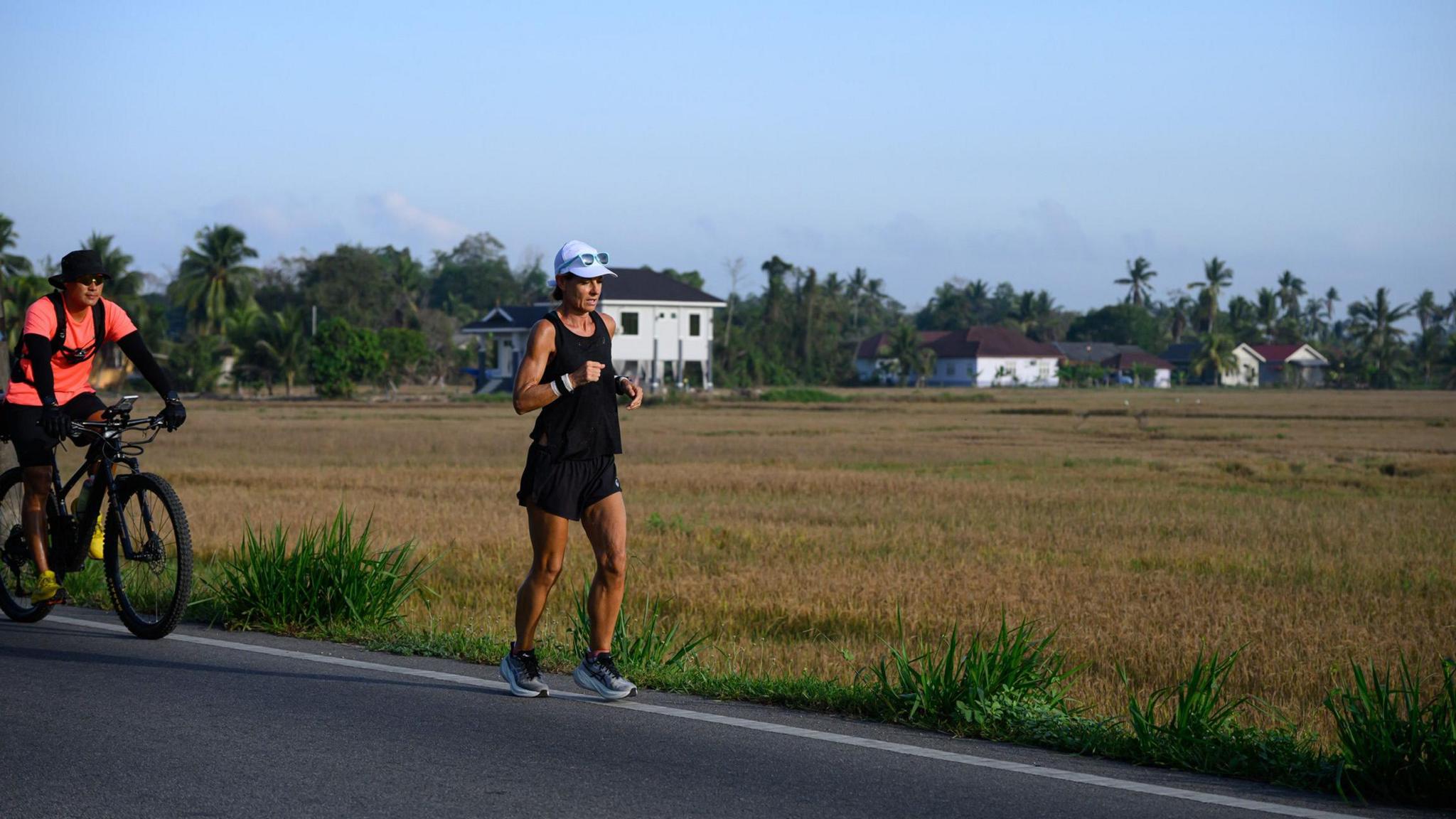
Ultra-runners are of “a certain personality type”, Natalie says
Yet others who take part in these runs say the basic sport is still open to many people.
"You need nothing but a pair of shoes," said John Ellis, a Hong Kong-based ultra-runner.
"The social and competitive side of races are fun, but the world is a big, wonderful place and it’s nice to get out there and see it while pushing your limits and finding out new things about yourself."
Mary Hui, a Hong Kong-based journalist who does long-distance trail runs, said it's also a "welcoming community".
"Running with a large pack, a lot of interaction before and after, hours and hours of training with these people… You'll notice that even the best runner can have a bad day on the trails. That can lower the barriers."
When asked if the thrill of completing the run was worth all the pain, Natalie said, the "adventure and the experience... That was worth it".
Would she do it again? She wondered aloud and responded only with nervous laughter.
Related topics
- Published25 October 2022
